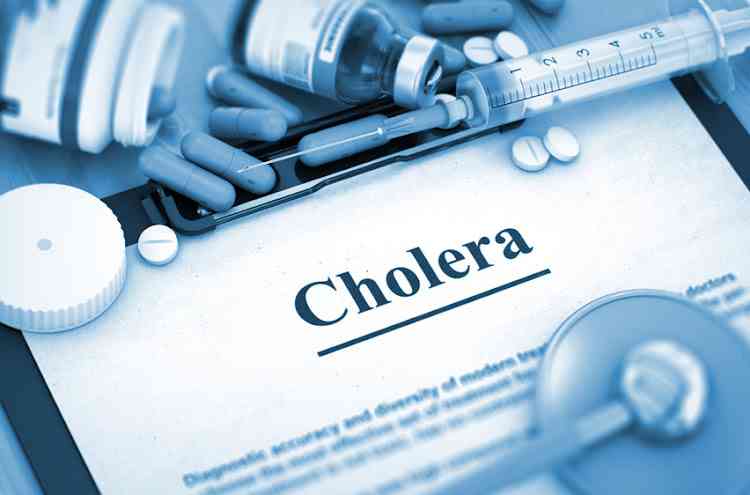
A CHOLERA vaccination blitz began on Monday as Zimbabwe targets to contain the waterborne disease which has been ravaging communities since last year.
The vaccination programme will cover at least 2,3 million people from the 26 high risk districts.
These districts are in seven out of the country’s 10 provinces.
The National Cholera Vaccination Campaign follows the delivery of 892 286 doses out of the 2 303 248 doses that have been allocated to Zimbabwe by the International Co-ordination Group for Cholera Control.
One dose of vaccine protects against cholera infections for a period of at least six months.
The next batch is expected on February 5.
Zimbabwe has recorded more than 20 000 suspected cholera cases and more than 400 confirmed and suspected deaths, since the first case was recorded nearly a year ago.A multi-sectoral cholera response plan led by the Health and Child Care ministry in collaboration with other government ministries and supported by Unicef, the World Health Organisation and partners and donors has also been rolled out.
The vaccination programme comes as a welcome relief to communities that have seen the waterborne disease run amok.Until the vaccination programme, government's response to the cholera crisis has been half-hearted, engaging in a blame game with local authorities at the expense of people’s lives.
- Young entrepreneur dreams big
- Chibuku NeShamwari holds onto ethos of culture
- Health talk: Be wary of measles, its a deadly disease
- Macheso, Dhewa inspired me: Chinembiri
Keep Reading
Government accuses local authorities such as Harare of failing to provide clean water and sanitation to residents.
In turn, the local authorities accuse ratepayers of failing to pay for service delivered. They say the government is the major debtor owing billions in unpaid bills.
The situation has been worsened by the ruling party’s behaviour which appears to be setting up local authorities for failure to justify the imposition of commissions that have in the past plundered the resources of local authorities.
The vaccination programme is welcome. However, prevention of the waterborne disease is the best cure. Local authorities require support to be able to supply clean water to residents.
The best government can do in supporting local authorities is to ensure that ministries, departments and agencies pay for the services rendered.
If they do not pay up, residents will not be motivated to pay their bills.
Government has in the past declared that it would buy water chemicals for Harare. However, the City of Harare is yet to receive that support.
We need to be serious if we are to contain cholera. This also behoves citizens to be vigilant and avoid gatherings.
Such a preventive measure was one of the means which helped Zimbabwe to contain the COVID-19 pandemic.
Until there is a mindset change, we will continue battling cholera in the coming years.
We should not lower our guard. History has shown that when we lowered our guard during the COVID-19 era, the consequences were dire.
The same could befall us in the fight against cholera.
We should practise high levels of hygiene while local authorities must be capacitated so that they provide clean water to residents.We have seen the government drilling boreholes. This should be a stop-gap measure. A lasting solution is for local authorities to provide potable water to residents.







